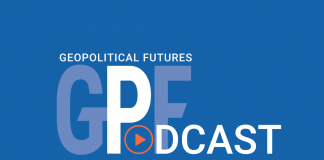Concerns over Russian troops. Ukraine’s Western allies have warned that Russia is massing troops on the Ukrainian border. U.S. Secretary of State Antony Blinken said on Friday that Washington was “very concerned about some of the irregular movements of forces that we see on Ukraine’s border.” Meanwhile, Ukraine received the fourth delivery of supplies – 80 tons of ammunition – from the United States as part of a $60 million aid package promised to Kyiv in August.
Good news, bad news. Chinese retail sales and industrial production appeared to bounce back strongly in October, according to new official figures. October data were expected to be pretty ugly, given the problems with energy production and the simmering real estate crisis. However, there’s more cause for alarm on the all-important real estate front. New home prices across 70 cities dropped 0.25 percent in October compared with the previous month, the steepest drop in China in six years or so.
Reaching out to NATO. Poland, Lithuania and Latvia are considering triggering Article 4 of the NATO treaty, which allows member states to ask for consultations if they feel their territorial integrity, political independence or security is threatened, amid an influx of migrants coming across the Belarusian border. The Polish prime minister on Sunday called on NATO to take “concrete steps” to address the issue. The EU foreign affairs chief confirmed on Monday that the bloc would impose sanctions against Belarus targeting the Minsk airport and other facilities and hotels hosting migrants.
Presidential chat. Chinese President Xi Jinping and U.S. President Joe Biden will be speaking by video link on Monday. This comes a couple of days after U.S. Secretary of State Antony Blinken and Chinese Foreign Minister Wang Yi spoke over the phone. The mere fact that the two presidents are talking is probably more interesting than anything that’s likely to be said during the meeting. Neither side has much interest in substantively changing its positions on the wide range of issues generating tension in the bilateral relationship. But there’s no shortage of reasons for both sides to mine for mutual interests and find ways to stave off escalations.
New era. Abu Dhabi Crown Prince Sheikh Mohammed bin Zayed will visit Turkey next week for the first time in 10 years. The planned visit is being described as the beginning of a new diplomatic era following years of hostility between the two countries after Ankara accused the UAE of financing those who planned the 2016 coup attempt in Turkey.
Inconceivable. Australian Defense Minister Peter Dutton said it was inconceivable that Australia would decline to help the U.S. defend Taiwan in the event of an attack. It’s the latest in a series of hints from the U.S. and its allies of a willingness to go to bat for the self-ruled island. It comes on the heels of similar comments from the U.S. secretary of state and president that the U.S. may be clarifying its commitments to Taipei. Australia and Japan, meanwhile, are continuing to deepen naval interoperability.
Russian-Egyptian relations. Russian President Vladimir Putin spoke by phone with Egyptian President Abdel-Fattah el-Sissi. They discussed trade, economic ties and joint projects, including the construction of the first nuclear power plant in Egypt and a Russian industrial zone near the Suez Canal.
Russian delivery. Russia has started delivering components of the S-400 air defense system to India ahead of Russian President Vladimir Putin’s visit next month. Delivery of the first division of the system is set to be completed by the end of 2021. India purchased the unit in 2018 for $5.4 billion.




 Special Collection – The Middle East
Special Collection – The Middle East